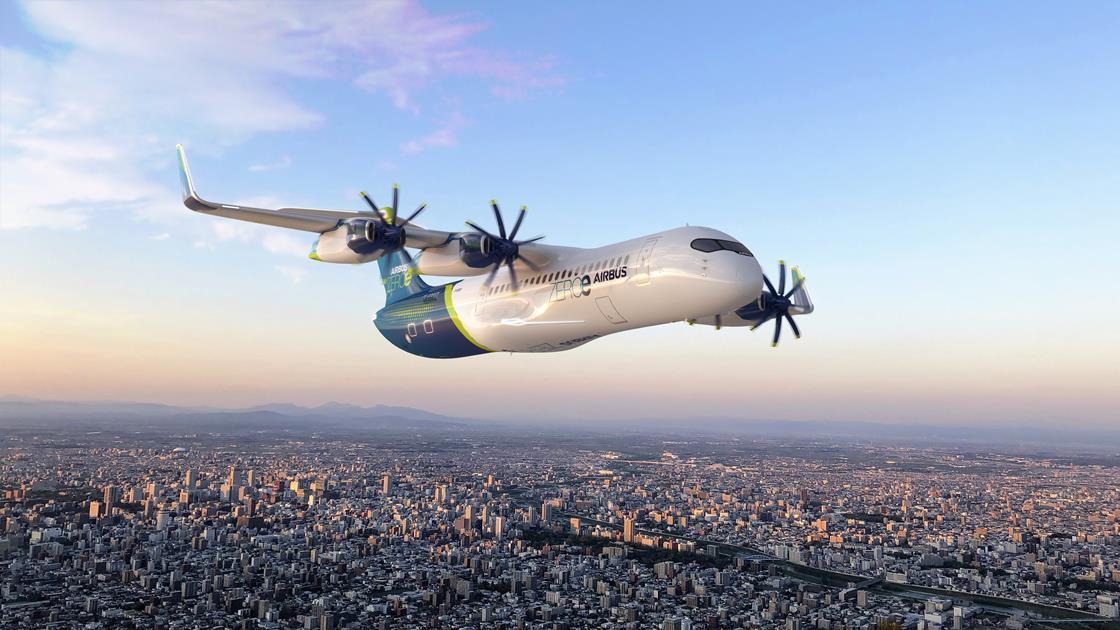Airbus Continues to Innovate with ZEROe Hydrogen Aircraft Despite Delay
Key Ideas
- Airbus persists with the ZEROe hydrogen aircraft program, enhancing design for a 100-passenger airliner with improved power density and efficiency.
- The program's delay of up to 10 years is attributed to technology readiness and infrastructure development, with a focus on making a commercially viable solution.
- Advancements in fuel cell powertrain development include weight reduction, volume optimization, and improved operational reliability.
- Future plans involve further performance enhancement, exploring new technologies like cryogenic superconductivity, and optimizing the propulsion system for potential higher-capacity aircraft.
Airbus is forging ahead with its ZEROe hydrogen aircraft program, unveiling a redesigned concept that can accommodate up to 100 passengers on routes spanning 1,000nm. Despite a delay of up to 10 years in service entry, Airbus remains committed to the belief that hydrogen-powered aviation is achievable. The program's aims include enhancing the power density and efficiency of the hydrogen fuel-cell propulsion system. By consolidating from six 1.25MW engines to four 2.5MW units, the design has seen significant improvements. Airbus is focused on making the solution commercially viable at scale, acknowledging the importance of technological readiness and infrastructure development. Ground tests of the 1.2MW fuel cell powertrain have shown promising results, prompting a 15% reduction in weight and volume. Future plans involve exploring performance enhancements and incorporating new technologies like cryogenic superconductivity. While flight testing plans have been altered, Airbus remains dedicated to advancing hydrogen technology for aviation, aiming to optimize the propulsion system for potential higher-capacity aircraft.
